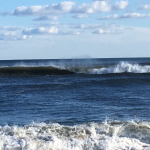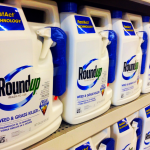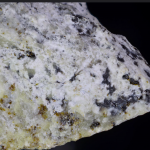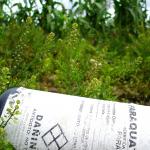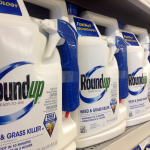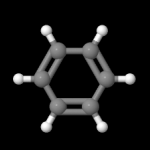It's no secret that the weed killer glyphosate shows up in our food. But how much of a health risk is this to consumers? A new review paper examining the evidence offers a reassuring conclusion.
Chemicals & Chemistry
It's summertime, and for many of us, that means the beach. It is impossible to be a beach dweller and not notice the unique and wonderful smell of the ocean. By all means, take a deep breath. But what you're smelling is actually a fairly hideous chemical called dimethyl sulfide. Huh?
Pennies are not only profoundly annoying and useless, but they aren't even made from copper anymore. They are zinc. And the amount of energy used, and pollution generated just to mint and transport them is rather horrifying. They need to go.
In part one of this series, we looked at some of the hallmarks of sloppy pesticide reporting. We round out our analysis here with a breakdown of three more themes common to this species of junk journalism.
Pesticides can be very dangerous; they're also vital tools farmers use to produce our food. Here's a guide to help you navigate the media maze of sloppy reporting on pesticide safety.
Usually an excellent source for science-based commentary, The Conversation recently published, to put it charitably, a questionable article about the dangers of the weedkiller glyphosate. What did the authors get wrong? Almost everything.
It's not all that uncommon for a chemical to be named after the place where it was discovered or even after the chemist who discovered it. But when this is applied to geology the results can be...amusing, or (better still), tasteless.
Thanks to excess alcohol consumption, July 4th is the deadliest driving day of the year. If you find yourself inebriated at a DUI checkpoint blowing into a breathalyzer, you can thank Sir Ewart Ray Herbert Jones for the invention he published 75 years ago. Yep, you've been caught by organic chemistry, specifically, the Jones Oxidation.
Lawyers and activists who allege that the weed killer glyphosate causes cancer have moved on to a second target: another herbicide called paraquat. Claiming this chemical can cause Parkinson's Disease, these courtroom crusaders are now suing the herbicide's manufacturers in pursuit of another payday. The science is not on their side.
A new report out of the European Union confirms what scientists have known for decades: the weed killer glyphosate poses minimal risk to human health and the environment.
As we’re in the midst of a reevaluation of whether the Virology Laboratory in Wuhan, China was the true source of the Covid-19 virus that caused the pandemic, a theory which the World Health Organization (WHO), many U.S. scientists, and the media rejected for over a year’s time, there is another issue that warrants a complete reexamination: The International Agency for Research on Cancer’s (IARC’s) assessment of glyphosate.
Benzene, a known carcinogen, was detected by a new company called Valisure, in hand sanitizer this past winter. Now, the company has detected it at various concentrations in sunscreen. Are the risks the same? Probably not.

